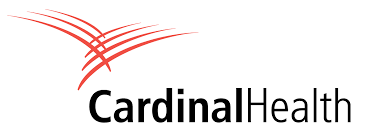- Bone Health
- Immunology
- Hematology
- Respiratory
- Dermatology
- Diabetes
- Gastroenterology
- Neurology
- Oncology
- Ophthalmology
- Rare Disease
- Rheumatology
BioFactura Initiates Ustekinumab Trial and Cardinal Health Launches Interactive Map for Interchangeables
BioFactura looks to join the ustekinumab biosimilar race and Cardinal Health provides an interactive tool with state-by-state interchangeable rules.
BioFactura, an Australian company, said it has initiated a phase 1 clinical trial for its ustekinumab biosimilar candidate (BFI-751), referencing Janssen Biotech’s blockbuster product Stelara. Ustekinumab is used for the treatment of Crohn disease, ulcerative colitis, plaque psoriasis, and psoriatic arthritis. The drug works by reducing inflammation in the body.
The single-dose, subcutaneous administration clinical trial will assess the effects of the biologic on healthy volunteers in what will be the first in-human trial of the biosimilar candidate. The comparative study will evaluate the pharmacokinetics of BFI-751 with product samples of Stelara available in the US and EU markets.
Safety and tolerability of BFI-751 also will be assessed, along with immune response. Study sites will be in Brisbane and Adelaide, Australia, and Auckland, New Zealand.
Multiple ustekinumab biosimilar candidates are in development, and in the month of July 2021 alone, several biotechnology companies announced trial progress, including Samsung Bioepis, Bio-Thera, and Alvotech. In addition, Dong-A St and Meiji Seika Pharma reported they have agreed on distribution plans for their own ustekinumab candidate (DMB-3115).
Ustekinumab biosimilars are not yet available in the United States or European Union.
Interchangeables
There are no interchangeable biosimilars at the writing of this article, but that could change any minute, given the expectations surrounding the FDA’s ongoing review of an insulin glargine (Semglee) product. This biologic is approved for use but does not have an interchangeable designation, which would allow pharmacists to substitute this biosimilar for the reference product (Lantus) without physician authorization.
However, the FDA’s determination on this and other biosimilars deemed interchangeable would still be subject to state laws that govern the circumstances under which biosimilars may be used interchangeably.
All states have passed interchangeable laws in anticipation of this class of biosimilars, and to make it easy for health care practitioners and pharmacy professionals to understand which rules apply, Cardinal Health, a health care services and products company, has created an interactive US map that allows users to look up interchangeability standards by state.
What is typical of these laws is that physicians must be provided notice of a biosimilar substitution after it happens, and substitutions cannot be made if the physician has expressly indicated on the prescription that the originator product is to be used. These state laws often specify that patients must be notified if they have been given a biosimilar instead of an originator product. The state-by-state laws are spelled out here.
Newsletter
Where clinical, regulatory, and economic perspectives converge—sign up for Center for Biosimilars® emails to get expert insights on emerging treatment paradigms, biosimilar policy, and real-world outcomes that shape patient care.


